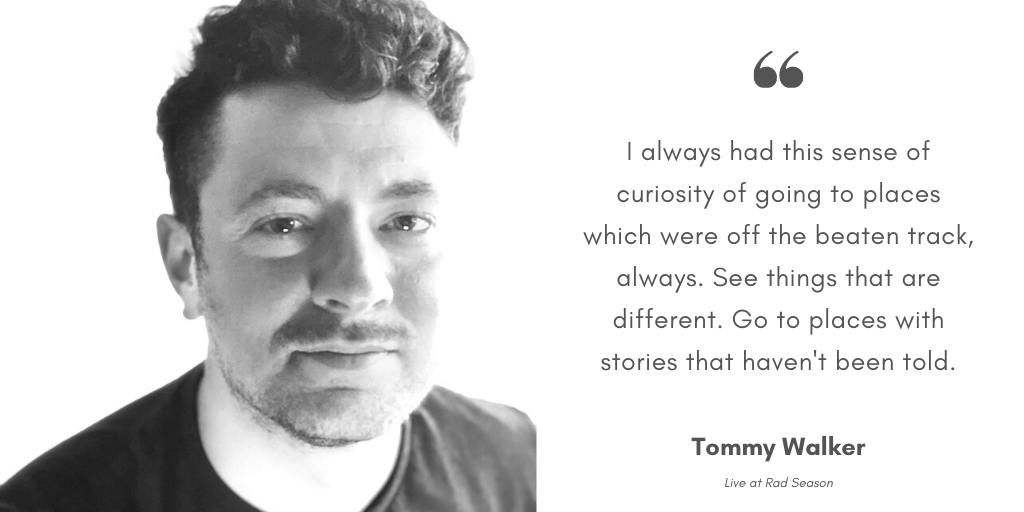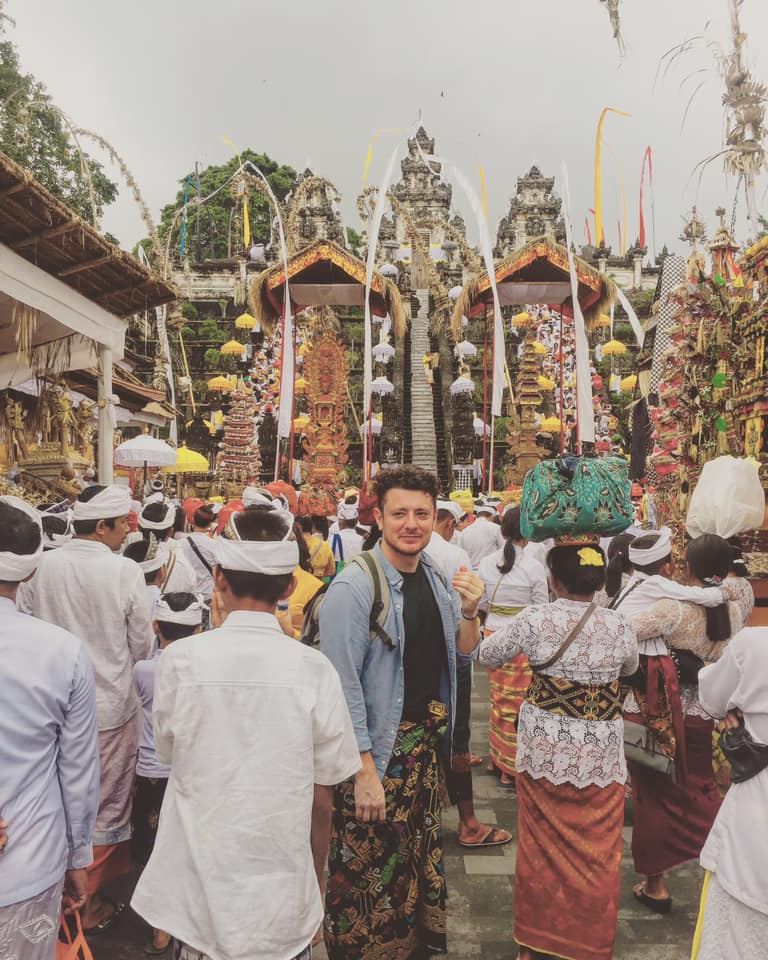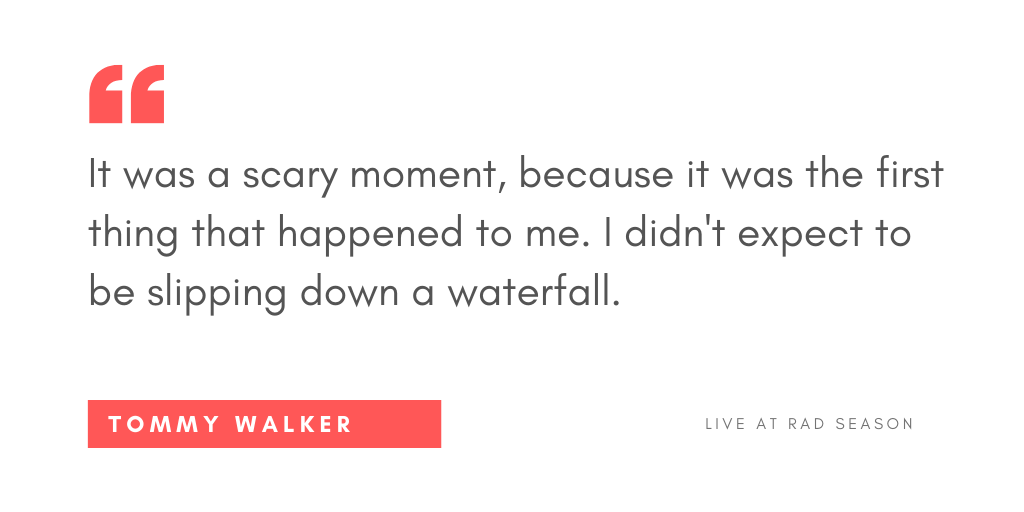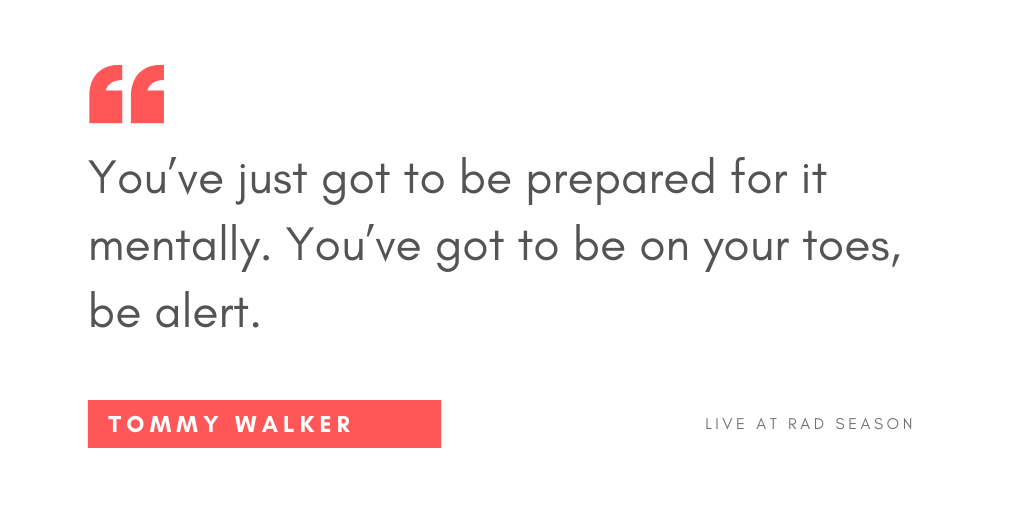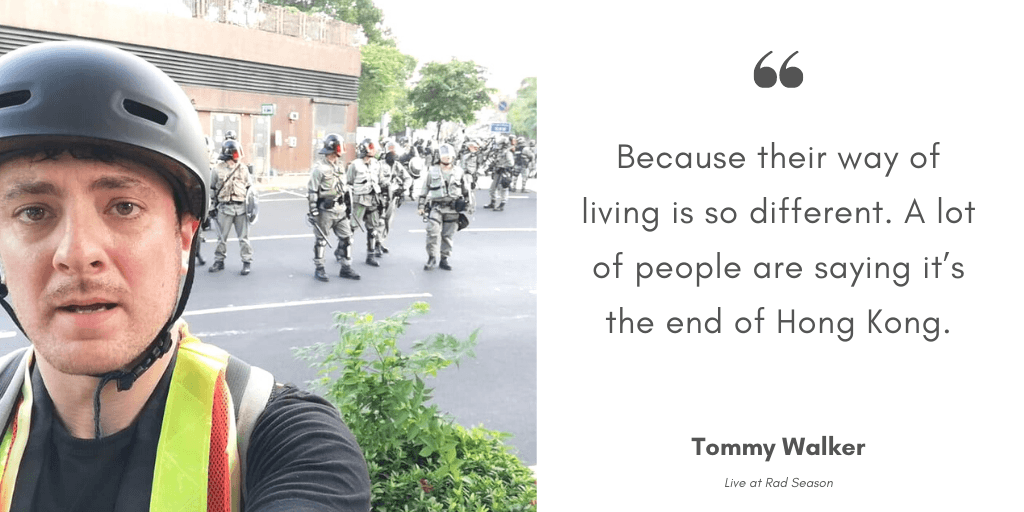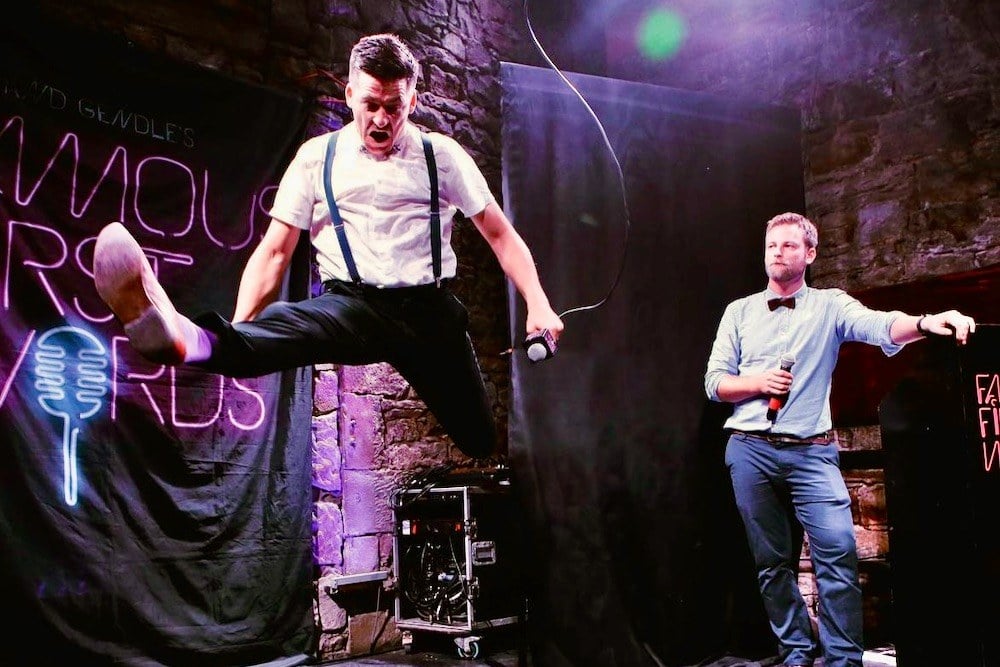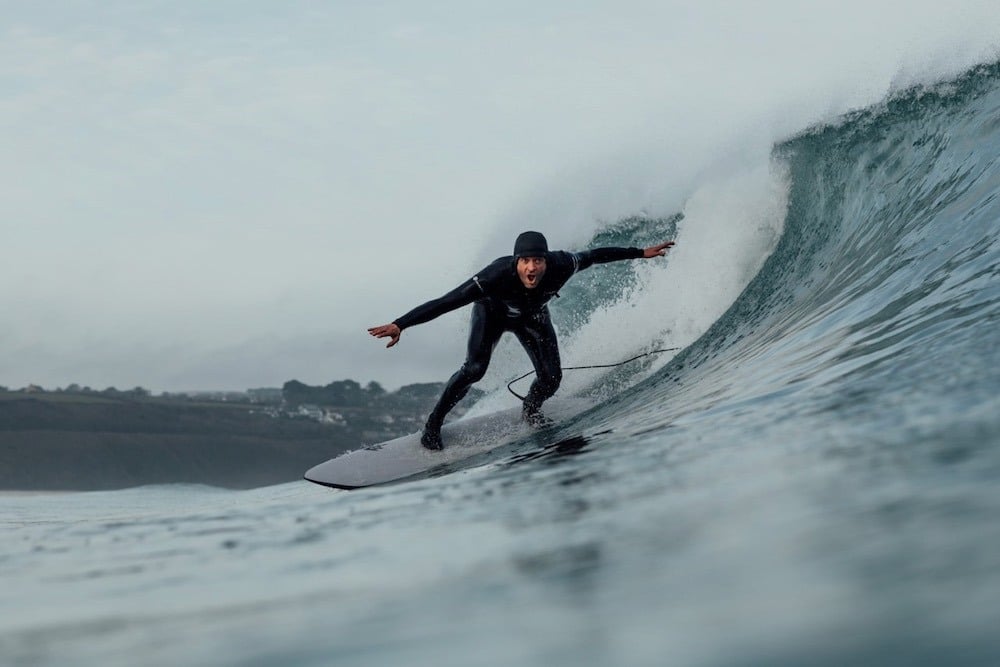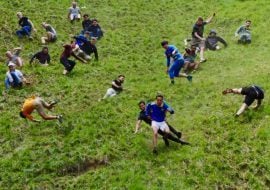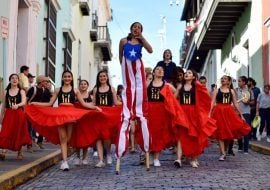Episode 11: Podcast with Tommy Walker, a journalist, photographer and travel writer going to places with social unrests and dark tourism
In this episode, Oli Russell-Cowan chats to adventure traveler Tommy Walker who has traveled to 72 countries. Tommy reports from Asia, Europe, and South America including stories on narco-tourism meeting Roberto Escobar (Pablo’s brother) and interviewing Medellin business owners in Colombia, visiting the special economic zone Rason in North Korea and the on-going pro-democracy protests in Hong Kong.
In their conversation, Tommy dives deep on how he got into traveling and the fascination of traveling to lesser-known places. Now being based in Hong Kong, he saw the place changing and started to report on the political unrest and protests over the past year. Now that China is taking more control, the question comes up whether he stays there or not.
The main takeaway of the chat was that traveling is not just all fun and easy which probably applies to life overall.
Listen to the podcast:
Dive in and listen to this episode on Apple Podcast and Spotify.
 facebooktwitterpinterest
facebooktwitterpinterest
Read the transcript:
Rad Season: Hi, guys, it’s Oli from Rad Season. I’m excited to be joined today by journalist and adventure travel writer Tommy Walker. Tommy, thanks for coming on the show.
Tommy: Thanks for having me. Cheers.
Oli: Whereabouts are you at the moment?
Hong Kong during times of unrest
Tommy: I’m in Hong Kong. It’s my third year. I have been sort of living here. It’s obviously in the news for political reasons. It’s quite a historic time to be here.
Oli: You’re covering the news over there? You’ve been out on the streets covering it, is that right?
Tommy: This year has been a little bit different because obviously COVID-19 restricted a lot of people’s movements worldwide. Hong Kong’s been no different even though the virus hasn’t been a huge catastrophe here. The virus’ numbers are quite low, just over 1,000, and only five deaths last time I checked.
So although it’s not as crazy as last year, there have been some restrictions to go out. And this has affected the protests. Basically there are social distance laws here like there is everywhere, and protests generally gather a fair few number of people.
 facebooktwitterpinterest
facebooktwitterpinterest
So that’s obviously put down the regularity of the protests. In comparison to last year, when it was literally five days a week almost.
I’m still in Hong Kong for now and have been covering the protests whenever they’ve been going on. But they haven’t been as regular as last year.
Traveling for eight years
Oli: You’ve been traveling and living away from the UK for eight years now, right?
Tommy: Yeah, long time. I left in 2012. I’ve always wanted to travel. I planned a three-month trip and for one reason or another that got extended and then here I am eight years later.
Actually, it’s crazy when I say it. It’s been quite an epic time. I‘ve been living away as well.
As I said, I’ve been based and living in Hong Kong for three years. This is my third year. I was in Australia for about three years too. I have been basing myself in places as well.
‘It’s not a normal eight years that most people would live but that’s just the way it is for me you know.’
Oli: You grew up in England. What was the itch? Why did you want to start traveling?
Tommy: I’m from the Northeast of England, if anyone knows, Teesside in between Newcastle and Leeds in the Northeast. I always had a sense of adventure and wanted to explore when I was younger. I had a lot of family who had lived and still are living worldwide. So that was a big influence on me.
Southeast Asia but not just the Banana Pancake Trail
When I was younger, my uncle used to live in Hong Kong and he used to come home with crazy stories of Southeast Asia. So that kind of put the curiosity to travel in my head from a very young age.
When I first left the UK eight years ago, I was 25 and did a backpacking trip to Southeast Asia. It’s most people’s first trip, especially from Europe.
That was amazing, I had the best time of my life. Just the eye-opener to be in such a different set of cultures and countries backpacking. A lot of people go on trips and they can go to the well-trodden places.
‘I always had this sense of curiosity of going to places which were off the beaten track, always.’
I made sure I went to Myanmar/Burma at that point, when there were hardly any tourists going and spent two months in India. This was all included in Southeast Asia and the South Asia trip. I always believed, see the best things as well as the off-beaten track things, just do both. There’s no travel for me without doing it a bit differently to some obscure places. I think that’s the essence of travel personally. Some people think differently but that’s my essence of travel.
‘See things that are different. Go to places with stories that haven’t been told.’
Maybe a little bit more risky and dangerous. I think that’s part of travel, that’s what you’re supposed to seek, something that is unfamiliar.
The first year in Southeast Asia was great and I’ve just been continuing on from there really.
Off the beaten path and dark tourism destinations
Oli: Looking back like when you first started traveling and going to these off the beaten path destinations, the concept called dark tourism probably did not exist back then. Was that something that you were seeking out or you just happened to be in these countries?
Tommy: There was definitely a purpose to find that, for sure. For me, there was definitely a purpose to be able to experience the mainstream places if you like, and even then, in 2012 before these places were mainstream. It just depends on who you are, and how you travel.
A lot of Brits obviously go on holiday, which is great and awesome and we all love that. And so going to Thailand might be wild to a lot of people who normally go on holiday to Spain or Greece and that’s fine. So, it depends on your perception of things. I always seek to go to the places which are further off the beaten track.
Myanmar without any tourists
Myanmar, formerly Burma was the first taste I got and what I really like. I think I saw three Western tourists in three weeks. So that was the first real sense of being in a place where you were the minority.
Travel guides, Blogging and Social Media
And you got to remember as well at the beginning, back in 2012, social media was around but it wasn’t like the boom that it is now. It wasn’t as addictive as it is. Now everyone’s on their phones and stuff back then there was a sense of it, but it wasn’t as much.
It was definitely less crowded, and less Instagram models. And, you know, bloggers if you like, obviously I wasn’t even a travel writer then.
That sense was really interesting to feel a place like that. It felt anxious at times for sure. But again, that’s the reward. The reward is overcoming that. That’s why I’ve always liked that sense of risk or sense of different because of the reward to see it and push yourself to a personal limit and then look back on that. I think that’s a really cool thing. For personal experience it’s really good to open your eyes, so to speak.
I definitely had a focus of going to the sort of places, which are off the beaten track.
Solo Travel
Oli: Were you always on your own?
Tommy: I went out on my own. As you probably see in this interview, I can talk a lot. I’m not afraid to approach people if I need to. I feel comfortable with doing that. I’m absolutely fine being on my own.
I went out by myself. Places like Southeast Asia, there is such an incredible social scene for independent and adventure travelers. You’ll always meet people that you can bond within some aspect. I was lucky actually because I met a bunch of travelers from all over the world in the first three months. A lot of us still meet every year to this day. It’s such a special relationship still that we still message. I was just messaging an hour ago on WhatsApp. We have a group.
I went out on my own, but you meet people. That’s part of traveling solo. When traveling you meet people from around the world and you get to know them. I’m lucky because I’ve kept in contact with a lot of people who I’ve met on that initial trip and some of them are my best friends.
‘You can go out alone but you’re never alone.’ That’s like the saying within the travel communities. You’re never alone if you don’t want to be.
Accidents in Thailand
Oli: On your first trip you went around Southeast Asia. Were there any standout crazy times that you had? Do you look back and think that was pretty wild?
Tommy: A few.
One which was kind of embarrassing but I actually slipped down a waterfall and in northern Thailand and that at the very start. I was just way too hungover and I went to this waterfall and I tried to jump over the mouth of it which was only like a yard, like one foot. It was a small waterfall but I slipped. I went down the mouth of it and quickly thought I put my heel up. That kind of stopped me on this little verge of rock. The rock was so smooth I couldn’t climb back up because there was no grip. So my friends had to try and pull me off. Eventually it was like this human chain, which included young Thai kids. It was like a human chain pulling me up.
If I fell down, I probably would have broken my leg, there’s no doubt. I wouldn’t have died because it wasn’t that high. When I was in the actual moment, I was looking down and I was shouting. I thought I could jump but then it was just pure rock. I was barefoot so it wasn’t the greatest idea to do that. Thankfully, I didn’t. That was the first moment that scared me.
Probably a week later I had a motorbike crash in the islands in Thailand. It’s a common thing. I’m kind of embarrassed to talk about that because it’s not the first time you’ll hear that.
Oli: Was it in Koh Samui or somewhere like that?
Tommy: It was in Koh Pha Ngan in southern Thailand. Some of the roads are super vertical. I was just going down a hill too fast. It was sandy and I skidded. I was lucky really because I jumped off just before the bike went on the grounds and that kind of cushioned my fall, so to speak. I still grazed all my right arm and my back. I’ve actually got a tattoo on my shoulder and there’s still a little bit that’s faded.
These are rookie mistakes at the time, you know, but they were moments I still remember. They stayed with me a little bit. It was almost nature’s way or travelers’ way of telling me just slow down a bit, things can happen. So they were two moments.
A creepy bus ride in India
There was an incident in India, which was pretty intense. I was on an overnight bus one night going from the west side of India to Udaipur. It’s like a 16-hour journey. I was with a British traveler, and we met this Irish girl and German girl and we’re the only Western travelers on this sleeper bus in India. A 16-hour journey and the driver was driving like crazy. He was driving so erratic, that it was actually worrying. And at that point, I’d taken many bus rides. So it wasn’t like the first time of doing a long overnight journey.
I don’t know if he was smoking something he shouldn’t have been. But anyway, this bus journey ensued and my friend lost his wallet somehow. He kicked up a big fuss and then ended up getting into this huge argument with two local Indian men. It was all it was a bit of a skirmish and everyone was arguing and stuff.
At one point one of the girls German girls with blonde hair was on her sleeper bed. It is like a top bunk bed on this big overnight sleeper bus. Then just one man, Indian man, climbed up and tried to get into bed with her. It was super creepy. I had to drag him down.
It was a super random weird bus journey. We eventually ended up getting off in the middle of the night. Luckily, we’re in Jaipur, which is like another popular tourist town. So there are moments like that where you don’t know what could have happened.
Oli: Now having those experiences, do you think at the back of your mind that traveling to these different countries and things can happen?
Tommy: Yeah, I think so. Everything in life is experience, you know. If I ever traveled to a place that is a little bit sketchy or off the beaten track, anything like that can happen.
There are certain places that you might want to take further precautions than other places. As you get older in my experience you do believe, it’s less likely to happen because you obviously base that opinion on your own travel knowledge and experience. It can happen for sure and that’s part of it.
That’s not the way I think about it. It might come across as looking for trouble but sometimes you just have to deal with whatever’s happening in front. That’s how it is. If you go to places that are off the beaten track there’s always a potential risk, for sure.
If you want to do that and take the risk, that’s your experience. If you don’t then each to the one, you know.
South America beyond the Gringo Trail
Oli: Going to the off the beaten path places is there anything essential you have to have with you?
Tommy: I spent about 11 months in South America. Brazil, which is sketchy and places like Venezuela, Colombia, Bolivia, Paraguay. At certain places I took certain precautions. For example, when I was in Venezuela I was told not to wear any jewelry and I’m not talking like Rolex watches. I’m talking like a $2 digital watch from a Brazilian market that is worth nothing.
I was in Venezuela in 2014. We have all heard of Venezuela’s problems for one reason or another but even then it was obviously having issues.
When you do the South America circuit, no one really adds Venezuela to their list even if you’re doing a long trip. If you’re doing a backpacking long travel trip a lot of people still don’t really add Venezuela to it.
I remember people saying, why are you going to Venezuela? It’s people’s perception and expectation of what they want from travel. Some people want to do what’s called the Banana Pancake Trail in Southeast Asia. In South America, it’s the Gringo Trail. The Gringo Trail normally consists of Colombia, Ecuador, Peru, and Bolivia. There are certain countries that people don’t really add to that. So anyway, I went to Venezuela and I was there.
What to pack
I bought a bum bag, or a fanny pack, whatever you want to call it. One of these things goes on your waist. I would put all the valuable stuff there. Then put it down my trousers. Certain things like that just in case you were to be held at gunpoint, or knifepoint because that happens, and it’s more regular than you think.
At least you’ve got a bigger opportunity of not having everything stolen from you. When you’re in these countries, if you get your passport, your phone, and your credit cards taken off you, it’s a scary time to get back on track. I think that’s a bit of a common trick, but little things like that can make a difference.
Simple things as well. Going back to Venezuela. Like not going out at night or venturing too far at night. It’s just simple stuff, don’t put yourself in that position.
Certain countries require certain safety precautions. That’s how I played it anyway.
Melbourne in Australia is a very livable city
Oli: After that, you moved to Australia. You said you were living over there for a couple of years.
Tommy: Yeah, mate. The chronological timeline of it was that I did a year almost in Southeast Asia. Then I went to Australia for a year, then I went to South America for a year. Actually these three years were pretty crazy. It was like a real full-on three years of solid good traveling.
I went back to Australia for a year and a half and based myself in Melbourne, Australia. It’s a really good place to live. Lifestyle wise, a lot of people tend to move there, even temporarily. It was a really cool experience and I met some amazing people. Thankfully, a lot of people I’ve met on the road were moving there as well, coincidentally at the time. It was very easy to settle. Gorgeous place. It’s far to live somewhere, especially when you’re from England. It’s a very nice place to live, you know, good weather, good food, laid back. Fun times. Especially if you’re first time traveling or in your 20s it’s a really good place.
Oli: I studied over there. I did University in Swansea in Wales, and then after that, I went to Australia to study on the Gold Coast. Lived in Sydney for 7 years and then moved to Portugal.
Tommy: You like the sun and the beach then?
Oli: Yeah I’m originally from London and I was commuting to the coast to go surfing in Devon and Cornwall. We thought we’d try and settle somewhere a bit closer to the sea.
I’ve just had a question come up from Julia. She’s asking what’s the nicest food you’ve had on your travels.
Tommy: For the quality of food and variety my favorite is Melbourne, Australia. Melbourne has very good food because of variety. Some cities in the world have international food but not as good as obviously the real thing. Maybe I’m a bit biased because I lived there for a while but the food quality and variety was really good.
If we’re talking about a place that’s my favorite for very good food of its own cuisine, I would say Mexico. It is great because tacos are like $2 on the street. They were awesome.
Obviously, Thailand is known for its food and its flavor. Vietnamese food is good. I would probably say these three.
If you go to Europe, it might not be as adventurous as some places in the world. If you’re from Europe you tend to go further afield to feel that sense of adventure. If you go to Italy or France the food is out of this world. My favorite would be Mexican, Thai food and Melbourne food.
Oli: Good coffee in Melbourne too right.
Tommy: Yeah, it’s a very coffee place. Yeah, I miss the coffee in Melbourne.
The current situation in Hong Kong
Oli: Now having three years in Hong Kong, what do you want to do? Are you going to be staying out there for the time being?
Tommy: Honestly the Hong Kong thing is a weird thing. Actually I didn’t originally plan to stay for this long. I really like being based in Asia. I’m happy to be a minority and get on with my own thing.
I just like parts of Asia where if you need something to get done it gets done.
My uncle used to live here in Hong Kong so there’s always been that intrigue. I came here and didn’t expect to last more than a year.
I came back for ex-girlfriends at a time. I’ve been a travel writer for a number of years and have worked in travel media as well as content writing for magazines. I’ve published articles and blogs.
The protests sparked last summer. I was asked by a few people. They said, well, you’ve done travel, writing, and journalism. Maybe do that. I’ve delved into other forms of writing before, football for a little bit.
The Hong Kong thing really reached out to me as it has with many people. It’s an old British colony. But the actual main reason is millions of people want democracy and a free society. It’s something we take for granted in the West.
That connected with me.
 facebooktwitterpinterest
facebooktwitterpinterest
You’ve got China and their system and then the international side. It’s a cauldron of different cultures and that’s why it’s super interesting.
Being in Hong Kong has connected with me so much. The people of Hong Kong are incredible. They are just so brave and passionate. I’ve never witnessed it before. I’ve been to countries and most countries I’ve been to I really enjoy the locals and culture. The Hong Kong thing.
 facebooktwitterpinterest
facebooktwitterpinterest
You don’t walk into that every day. It’s just connected with me and so many other people so much. If the viewers don’t know, but there’s a new national security law that’s been passed in Hong Kong, which essentially gives Beijing a little more control over Hong Kong.
So we are in historic times right now right, this second. So I don’t know how long I’m going to be here because of that. There are many people leaving. Locals, expats, journalists, a lot of people. It’s a weird time. A strange time that we’ll always look back on. So I don’t know, I can’t answer that. I’m just trying to get one day at a time at the moment. So we’ll see. Things are changing in Hong Kong.
It’s not going to be like the Hong Kong of the past. If people have visited Hong Kong before, it’s changed. You either stick a twist, you know, you stick and you see how it goes or you twist and you say, you know what, I don’t want to be part of Hong Kong. That’s not Hong Kong. We’ll see.
Oli: If people want to follow you what’s the best way for people to see what’s going on in Hong Kong?
Tommy: It’s best to follow me on Twitter. You can follow me on Facebook but for some reason, I’m having issues with regularly updating on Facebook. My Twitter account is wanderingwalk3r and Instagram is tommywalker.co. Anything on Hong Kong for now anyway. I’ll be posting in the future for any future travels. I post stuff on my travels there as well.
If people want to follow me and see some photo albums and articles then they can do that.
Bucket List Destination
Oli: Any place on your bucket list that you want to visit?
Tommy: Yeah, huge. I’ve got a bit of a fascination with Africa as a whole, no specific country. It’s always been like that pinnacle of travel for me because of the size of the continent. I just think for so many different reasons, the cultural aspects, the heat, the wildlife, the poverty, the social issues, the political issues, the history, everything. I think from a travelers perspective, I think personally, it’s the ultimate. In terms of the toughest places, I’d imagine traveling to Africa and the Middle East.
Africa has always been there, the Middle East too. It’s the one that I need two years to take away and get away from whatever I’m doing and just travel around and live there. That’s the one.
Of course the more you travel and the more you open your mind to things, there are more places you want to go on individual trips. I would say Africa. And if I hadn’t been to South America, I would probably say South America first.
Oli: Thanks, man. I’ll be keeping an eye on what’s going to be happening in Hong Kong in the next few days.
Tommy: Let me know if you want to chat in the future about anything, you know, any future stories or past stories I can remember.
 facebooktwitterpinterest
facebooktwitterpinterest
I’ve been to North Korea, which we haven’t touched on yet, but maybe you can save that for next time.
Oli: Next time for sure, thanks Tommy.
Watch the video:
Photo Credit: Tommy Walker
Missed the last episodes? Check them out!
Episode 8: World Surf League – Joe Turpel
Episode 9: Wife Carrying – Julia Galvin
Episode 10: Big Wave Surfing – Andrew Cotton
Last updated on Jul 2, 2020Have you subscribed to our Newsletter or Podcast? Listen to us on Apple Podcast and Spotify and follow us on Facebook, Instagram Twitter and YouTube.
Accommodation near Hong Kong
Rad Season is providing you with rentals and hotels at the lowest prices available online. Book your stay near Hong Kong using the map below!
Related articles

Oli Russell-Cowan
The concept for Rad Season came about when I was trekking around Latin America. I found it difficult to find cool events and festivals going on that were a bit different and had an element of adventure and general radness to them. I knew that there was always something rad worth going to somewhere in the world, but there was no single platform bringing them together for like-minded people. With over 15 years experience in international business development, spanning multiple industries including action sports, events, media, digital, ICT, travel and tourism, I decided to combine them all with Rad Season.
Comments
Rad Season's top 5 action sports, adventure, culture events and festivals in 2023

